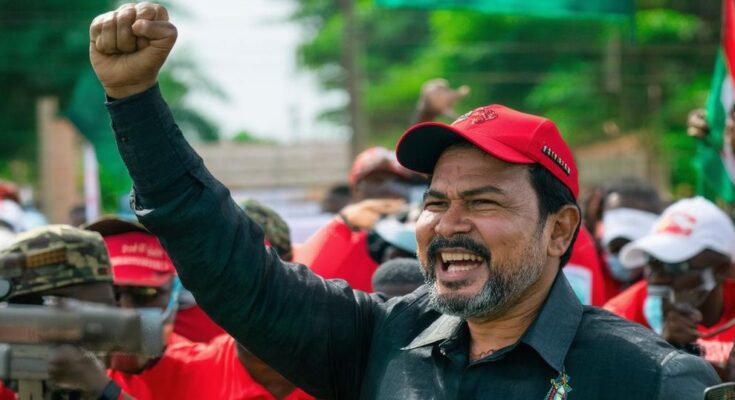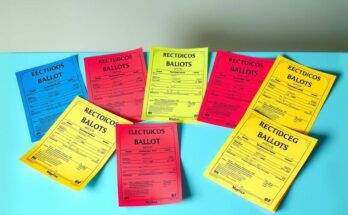Daniel Chapo of the Frelimo party has won Mozambique’s presidential election with 71% of the vote amidst allegations of fraud and violent protests. His victory follows a tumultuous election process, particularly shaped by ongoing clashes between police and demonstrators accusing the party of electoral misconduct. Frelimo maintains that the results are legitimate, asserting that they reflect the people’s will, despite widespread unrest and allegations of foul play.
Daniel Chapo of the Frelimo party has been proclaimed the victor of Mozambique’s presidential election, held on October 9, despite the election process being plagued by violence and allegations of fraud. The National Electoral Commission announced that Mr. Chapo secured approximately 71 percent of the votes, succeeding Filipe Nyusi, who was limited to two five-year terms in office. The announcement arrives in the midst of significant turmoil in the nation, particularly due to a prolonged insurgency instigated by Islamist militants in the northern region of Cabo Delgado. The conflict has exacerbated existing social divides, highlighting the stark contrast between the affluent sectors benefiting from Mozambique’s abundant natural resources and the widespread poverty and unemployment experienced by many citizens. In the wake of the election results, protests erupted across the capital, Maputo, where demonstrators accused the ruling party of electoral malfeasance and accused them of being complicit in the fatal shooting of two supporters associated with Mr. Chapo’s principal opponent. Frelimo has vehemently denied these allegations, asserting that the electoral outcomes genuinely reflect the will of the populace. Ludmila Maguni, a representative from Frelimo, stated, “Frelimo is confident that the results reflect the will of the people.” This election marks one of the most significant challenges to Frelimo’s authority since the nation’s independence from Portugal in 1975 and the civil conflict that ensued shortly thereafter.
The political landscape of Mozambique has been dominated by the Frelimo party since independence in 1975. The party has faced numerous challenges over the decades, including a civil war and ongoing issues related to economic disparity and social unrest. Recent years have seen a rise in violence associated with insurgent groups in the northern regions, particularly Cabo Delgado, raising concerns regarding national stability and governance. As the Frelimo party continues to maintain control amid such turmoil, the legitimacy of its electoral processes has come under scrutiny, particularly in the light of recent claims of electoral fraud and violent protests stemming from discontent among the populace.
In summary, Daniel Chapo’s election victory for the Frelimo party occurs against a backdrop of notable violence and significant accusations of electoral fraud, accompanied by public dissent. The ongoing insurgency and socio-economic struggles continue to test the government’s stability and legitimacy as the country grapples with widespread unrest and calls for accountability amidst claims of electoral manipulation.
Original Source: www.nytimes.com




